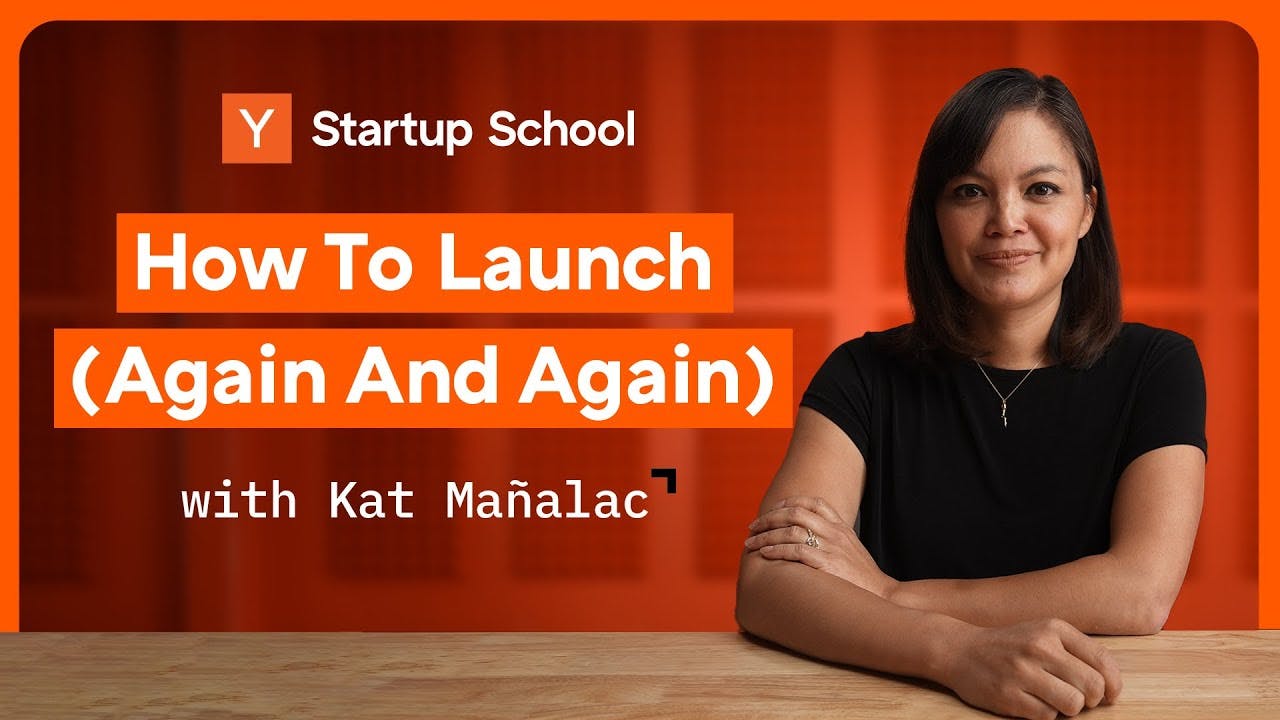The Best Way To Launch Your Startup | Startup School
09 Nov 2023 (2 years ago)

Launching Your Startup (0s)
- Having helped over 3,500 companies launch, the theme is to continually launch rather than overthinking the first one.
- Founders often mistakenly believe they only have one shot and that the launch must be perfect.
- Delaying the launch seeking perfection can be detrimental; launching frequently and iterating is key.
When Should I Launch My Startup? (1m28s)
- Launch should happen as soon as possible to validate ideas in the real world.
- Delaying launch can perpetuate self-deception about the startup's value.
- The worst-case scenario of launching too early is minimal compared to the feedback and iteration opportunities it provides.
- Prioritizing making a few users very happy is better than making many only somewhat satisfied.
One Sentence Pitch (3m42s)
- Clarity of vision allows for a strong, one-sentence pitch that's easy for anyone to understand and share.
- Word of mouth is an essential growth tool, so having a clear and concise way of describing the startup is crucial.
- Communicating effectively with a one-sentence pitch is a key skill for founders.
How to Create a Short Memorable Description (5m19s)
- Start descriptions with 'what' the company does, not 'why'–provide context immediately.
- Avoid meaningless jargon and be explicit about what the startup offers.
- Keep it short to maintain the listener's attention; rambling leads to disengagement.
- Use real-world examples to illustrate clear and direct startup descriptions.
When is the X for Y Construction Not Too Cliche? (9m17s)
- The 'X for Y' framework can be cliché but is useful if 'X' is a well-known brand, 'Y' is a clear target, and the market is large.
- A one-liner should describe the problem, solution, and audience without relying on this structure but can use it effectively in the right context.
- One-liners must be descriptive, conversational, jargon-free, concise, and give no excessive backstory.
Continuous Launch and Iterative Learning
- Launching continuously offers practice to refine pitches and understand customer responses.
- Early launches with evolving products enable A/B testing of messaging and ideas.
- Different launch channels reach varied audiences, aiding in finding the right user base.
Types of Launches (12m5s)
- Silent Launch: Essential step with a basic landing page featuring a domain name, company name, short description, contact method, and call to action like a signup form.
- Launch to Friends and Family: Test idea pitch or MVP on familiar contacts for initial feedback, with caution since they may not represent the target market.
- Launching to Strangers: Engage directly with potential customers early on for feedback as exemplified by DoorDash founders who iterated quickly after talking with business owners.
- Launch through Online Communities: Launch within communities one is already a part of, such as Y Combinator's Bookface platform or Hacker News, with successful examples like Dropbox, GitLab, and Robinhood.
Additional Launch Strategies
- Startups should be omnipresent on platforms like Twitter, Reddit, and Hacker News.
- Utilize social media like TikTok to build a community before launch, as seen with Anja Health's strategy to gain 10,000 followers in a month.
- Pre-order Launches: Effective for hardware or physical products using platforms like Kickstarter or Indiegogo, but one should research and prepare thoroughly.
- Waitlist Launches: Engage and onboard users from a waitlist in a timely manner to avoid losing potential conversions.
- Avoid excessive focus on press for early-stage startups; it's not guaranteed and doesn't assure sustained growth or product-market fit.
Building Community and Engagement
- Create an email list of supporters during startup school and maintain engagement.
- Use various channels to promote each new product or feature.
- Engage with online communities consistently; Stripe is highlighted as a successful example of periodic re-launching and community engagement.